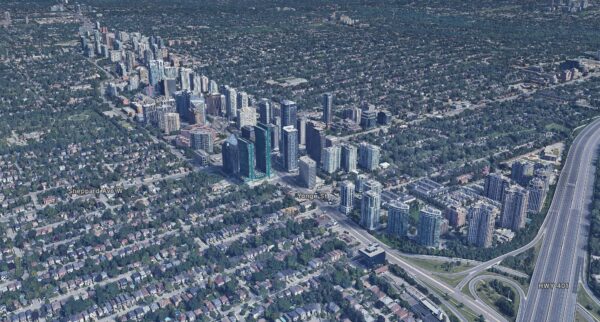In the fall of 2023, the Brampton Board of Trade conducted a survey of our membership to gauge business confidence in our community. This survey revealed several key insights, with one of the most compelling being the primary business concerns of 2023. These concerns were: labour shortages and talent attraction, transportation, and housing affordability, with 22 percent of respondents citing housing as a top business concern compared to 13 percent the year prior.
Each of these areas warrants thoughtful consideration, but the last one, housing, is particularly intriguing as it might not initially appear to be a business concern. Of course, there are human rights concerns with the affordable housing crisis, especially with shelters in the Peel Region operating at 400 percent capacity. The housing crisis is a social failure and a poly-crisis that contains multiple wicked problems, implications, and potential solutions. Given its significance to our members, it is worth examining in greater detail as it relates to business. But before articulating the business case, let’s examine the challenges to solving the housing crisis.
We Need to Build More Housing
What every layer of government seems to agree upon for the most part (though they may quibble about the details), is that there is insufficient housing stock, something housing advocates have been saying for years. It’s a simple supply and demand story. We simply have more demand than supply, so let’s build the supply that meets our demand.
But there are real challenges to building supply. There are shortages in the skilled labour that is required to build housing. There’s also material costs and taxation concerns that create incentives and disincentives for certain kinds of development over others. Traditionally, “missing middle”, or low-rise density/infill housing was not only illegal to build in most areas zoned for single family homes, but also not financially viable where they could theoretically be built, resulting in urban landscapes that feature agglomerated high-rise city centres in the middle of suburban sprawl.

Challenges to Creating More Supply
In addition to these challenges, there’s also the challenge of the time it takes to construct housing. A condo building, depending on size, could take 18-24 months to construct, give or take delays and weather. Even before shovels hit the ground, developers face significant delays in bureaucracy. After submitting a proposal to the city, it can take years to obtain approval. A 2020 survey found that development approval periods range from 20 to 24 months due to thorough reviews by city staff, city council, and public agencies. Additionally, obtaining building permits for a condominium in Toronto adds another two years to the process.
It should be noted, however, that the City of Brampton has made several improvements to reduce delays in issuing building permits. Brampton issued over 10,000 building permits worth over $2 billion in 2022. The city has streamlined its building permit process to enhance efficiency and reduce waiting times, including implementing an online application system, but the process still remains, and permit delays are still a concern for developers to get more housing built in Brampton.
The case of Willowdale’s modular housing project in Toronto highlights the problem of process delays. The City of Toronto is moving forward with a supportive housing project at 175 Cummer Avenue in North York, initially announced in 2021 to address homelessness during the COVID-19 pandemic. Despite seeking expedited ministerial zoning orders (MZOs), political opposition, particularly from local Progressive Conservative MPP Stan Cho and a group of concerned residents, delayed the project for about three years. Consequently, Toronto had to follow the standard zoning process, resulting in significant delays and cost increases from $14.6 million to $36 million.
The obstacle in this case was not intervention, but precisely the lack thereof. The standard planning process alone is enough of an obstacle to getting crucial affordable housing built. Despite political and community resistance, Toronto city council remained committed to navigating the legal and procedural hurdles to getting this project online. But a city shouldn’t have to battle its own procedures to exercise their leadership – the very thing Torontonians elected them to do.
The Business Case to Solve the Housing Crisis
Let us return for a moment to surveyed businesses that told us that the housing crisis was a top business concern. Why might the housing crisis be viewed as a business problem? As I briefly touched on, exorbitant house prices significantly impact the labour market. A housing crisis that prices out most Canadians discourages labour from staying or moving to Canada, hindering businesses’ ability to attract and retain talent. According to a recent report by WoodGreen and the Toronto Region Board of Trade, the lack of affordable workforce housing costs the Greater Toronto Area nearly $8 billion annually, or approximately $37.9 billion every five years. Additionally, as a larger portion of income is spent on housing costs, businesses experience added wage pressures.
This issue is compounded by sector-specific challenges, such as the urgent need for more construction workers to meet ambitious housing targets. The Canada Mortgage and Housing Corporation identified the growing shortage of construction labour as one of three factors leading to longer construction times, alongside larger project sizes and rising costs. Workers are retiring faster than they are being replaced, a trend exacerbated by the pandemic as many construction workers changed careers or retired early. Canadian Home Builders’ Association CEO Kevin Lee estimates that 22% of residential construction workers will retire over the next decade. Clearly, the housing issue is intrinsically linked to labour concerns.
Furthermore, excessive spending on housing has broader economic implications, affecting consumer spending overall. In 2021, Canadian households spent an average of $21,106 on housing, a 4.5% increase from 2019. Conversely, average spending on goods and services decreased by 2.7% to $67,126, marking the first decline in household spending since 2010. When accounting for consumer inflation of 4.1% from 2019 to 2021, the real decrease in average household spending was 6.5%. This shift indicates that rising housing costs are squeezing consumer budgets, reducing their spending on other goods and services and potentially stalling economic growth.
Housing is an Economic Development Issue
Perhaps the most critical long-term implication of the housing crisis is its threat to our community’s economic development vision. To realize Brampton’s 2040 vision and move beyond the city’s status as a “sleeper suburb”—where residents leave the city to work and play—we must ensure that our communities remain affordable, enabling residents to choose to live, work, and play here. Achieving well utilized public transit infrastructure, which will no doubt attract new development, requires that new development benefits all income levels, not just the highest earners, and doesn’t financially stretch residents to meet the essentials. Addressing the housing crisis means prioritizing placemaking and creative mixed-use development, which present their own business opportunities. An affordability crisis stifles the potential for new markets and business growth.
And by far, the most expensive policy choice governments can make is inaction. No major infrastructure project or housing development will be cheaper than it is today. Just look at the case of Willowdale where the project is now nearly 2.5x more expensive or the Main Street LRT which has now ballooned from $200-$300 million in 2015 to at least $988 million in 2024. Brampton’s population is growing inexorably, and our economy relies on it. The demand for more housing will only grow and the longer we wait to bring critical projects online, the more expensive they will become. Fighting the impulse for inaction is a main pillar of BBOT’s advocacy efforts.
With this understanding, the Brampton Board of Trade invites businesses, employers, construction companies, developers, urban planners, city staff, and community advocates to work with us to shape housing advocacy for Brampton. The aim is to articulate the real-life business and community costs of the housing crisis and collaborate on crafting policies to ensure that affordable housing stock is built quickly in our community. This effort will also involve removing bureaucratic obstacles to development and getting out of the way of businesses that are trying to do good work to provide us with housing.
As I work to shape BBOT’s housing advocacy, I encourage you to share your ideas by reaching out to me at vsingh@bramptonbot.com. Together, we can create a thriving, inclusive Brampton.
